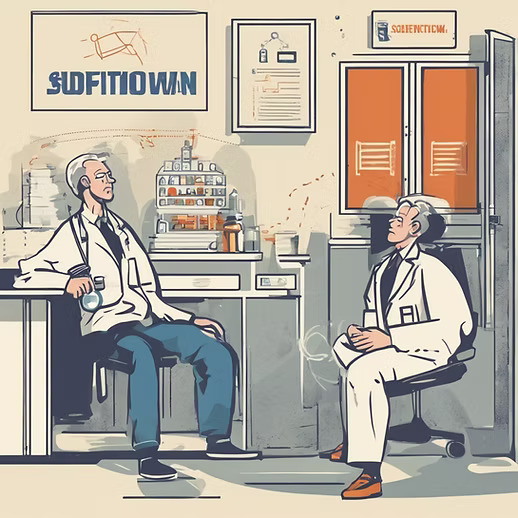Gradual Reduction vs. Sudden Cessation: A Scientific Approach
When it comes to quitting sugar and other addictive substances, two common approaches are often considered: gradual reduction and sudden cessation. Both methods have their advantages and disadvantages, but there is scientific evidence suggesting that sudden cessation may be more effective in overcoming addictions.
Benefits of Sudden Cessation
Rapid Changes in Brain Chemistry
When substances like sugar are abruptly discontinued, rapid changes in brain chemistry can be observed. The consumption of addictive substances increases the release of reward chemicals like dopamine. Suddenly stopping these substances can help quickly rebalance the brain, making it easier to break the addiction cycle.
Increased Motivation
Many people feel a stronger sense of willpower when they quit their addiction all at once. This motivation can support the individual in achieving their goals and increase their desire to overcome their addiction.
Noticeable Physical Symptoms
Abrupt cessation leads to noticeable physical symptoms in the short term. These symptoms make the presence of the addiction more apparent and can encourage the person to overcome the challenge. For instance, headaches and mood swings can help individuals recognize the seriousness of their addiction.
Less Anxiety
In the gradual reduction method, continuous exposure to small amounts of the addictive substance might increase the craving for it rather than decrease it. With sudden cessation, this ongoing contact is eliminated, which can make it mentally easier for the person to break free from the addiction.
Scientific Research
Research has examined the effects of sudden cessation on addictions. For example, a 2015 study observed that suddenly discontinuing addictive substances resulted in quicker recovery in the brain’s reward system. The study found that participants who suddenly stopped consuming sugar showed a faster reduction in addiction symptoms.
Additionally, a 2020 study revealed that individuals who abruptly quit addictive substances achieved longer-lasting success. The research emphasizes the important role of motivation and chemical changes in the brain during the process of overcoming addiction.
Individual Experiences Vary
Every individual’s experience with addiction is different, and the best approach may vary based on personal needs. However, scientific evidence suggests that sudden cessation can offer a faster and more effective route to overcoming addiction. The increased motivation, rapid brain chemical balance, and quicker reduction in addiction symptoms are some of the advantages of sudden cessation.
Conclusion
For some people, sudden cessation may be a more effective strategy for overcoming sugar and other addictive substances. It's important to seek support and make healthy lifestyle changes during this process.

